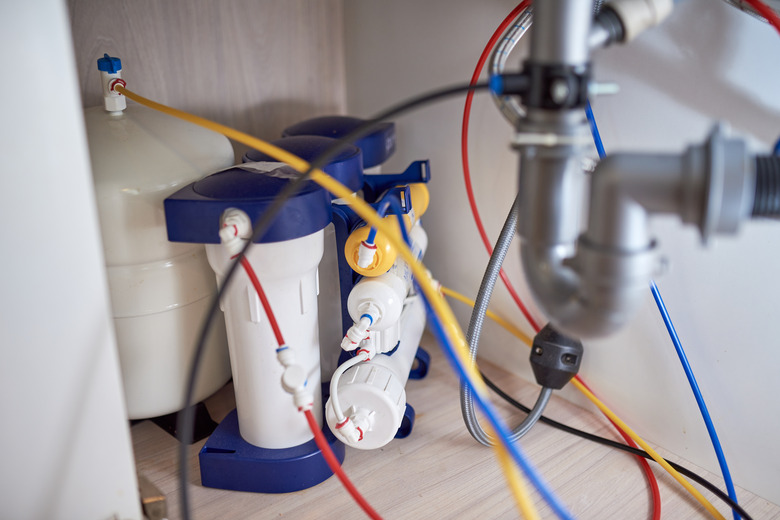Advantages & Disadvantages Of Reverse Osmosis
Clean drinking water should be a given anytime you turn on a tap at your home. Cleaning that water that flows from the city lines can remove further impurities, such as selenium, fluoride, barium, copper, arsenic and other minerals that are naturally leached from aquifers. These can end up in trace amounts in the water you drink from the tap. Reverse osmosis, or RO, seems like a dream flowing from the faucet. But there can be situations in which reverse osmosis isn't ideal.
What Is Reverse Osmosis?
What Is Reverse Osmosis?
Osmosis may sound complicated, but it is actually a natural process. It can be seen in plant roots soaking up water and minerals from the soil and how kidneys take in water from the blood. Reverse osmosis uses a semi-permeable membrane or filter. Water is pushed through the membrane with the pressure that keeps the impurities back and lets the cleaner water flow through. The pore size is .0001 micron, meaning that reverse osmosis is very effective in removing bacteria, such as salmonella and viruses, including Hepatitis A, the norovirus and rotavirus, and protozoa, such as giardia. These can be harmful to infants and the elderly if they are found in large quantities in already-treated water.
Benefits of Reverse Osmosis
Benefits of Reverse Osmosis
Water may look clear as it pours from the tap, but there are trace amounts of what some may consider to be unwanted contaminants. These can include lead, nitrates and nitrites and have a high amount of total dissolved solids. The problem with a large quantity of total dissolved solids is that it can be hard on the kidneys of someone who suffers from regular kidney stones. Soft water carries extra sodium, which can also be debilitating for those with certain medical conditions. The RO process takes down those levels to produce clean water.
Osmosis Water Filter Disadvantages
Osmosis Water Filter Disadvantages
Although ultra clean water seems like a fantastic idea, it has its detractors. Some believe that removing all of the impurities through the reverse osmosis process also reduces the number of beneficial minerals. Water carries calcium and magnesium in healthy quantities for growing children and healthy adults. The drawback of RO water is that it can significantly reduce these good minerals that can aid in overall heart and muscle health. Those who use reverse osmosis as their main source of water can suffer from side effects, such as tiredness, muscle cramps, general weakness and, in severe cases, cardiovascular disorders. Some critics have also suggested that drinking reverse osmosis water dilutes the body of electrolytes.
